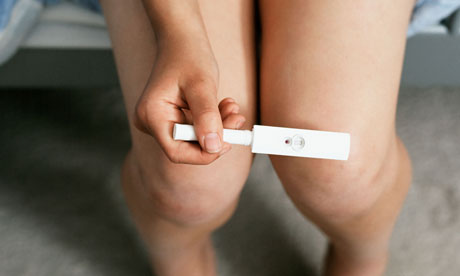
A quick note: if you want to rehearse and re-hash the whole abortion right/abortion wrong debate, please exit this article now. This is not what it's about.
Some 61% of the world's people live in countries in which induced abortion is permitted either for a wide range of reasons or without restriction as to reason. It is the law. But the trouble with the law is … it just says stuff. And just saying stuff isn't the same as making it happen.
Imagine you are a 17-year-old girl and you unintentionally become pregnant. It is an accident, a mistake, an error, a failure in contraception: something you took every possible precaution to prevent, but still it happened. These things do. Or it could have been a rape: something completely outside your control.
Having discovered you're pregnant, you sit down, have a careful, quiet think about your situation, decide not to proceed with the pregnancy, and reach for your copy of the 1967 Abortion Act (England, Wales and Scotland) as amended by the Human Fertilisation and Embryology Act in 1990. Fine. It's all there in black and white. Your legal entitlement. Everything will be sorted. Won't it?
Well, not really. Having a "careful quiet think" is hardly an option for an under-informed, anxious 17-year-old who has just realised it is many many mornings after the morning after and who is firmly of the opinion that she has ended up in one of the most inextricable messes imaginable.
She is angry, upset, and desperately unsure and alone. She thinks she's been stupid, she fears the reactions of her parents and friends, and she's deeply worried about how her partner will respond. Suddenly, the future looks perilous, dark and complex.
At such a time, a young person needs to be in full possession of the straightforward, impartial facts about the situation in which she and her partner find themselves. They need to be aware of the options they have, the procedures involved, and how they can go about making a decision. They need objective practical information. They have no need for judgmental opinion (masquerading as fact) promoted by screaming interest groups on both sides of an ethical debate.
But few young people dealing with an unwanted pregnancy will be in this position. They could only be so if their schools had provided them with a sophisticated and nuanced curriculum of sex education. In the UK, we just don't do that. We struggle to get through the basics. We certainly can't handle the subject of abortion.
If young people are uneducated about pregnancy and abortion, their peers will be uneducated too, so the chances of getting any intelligent advice from friends are limited. They might get sympathy and understanding, but there's no guarantee. They might just get cold-shouldered and called a "stupid slapper". Young people can be as illiberal and unenlightened in their attitudes as anyone.
What about the parents? Many are poorly educated in, or sensitised to, the issue. Many still view it from a perspective that places a young girl in an impossible position. She shouldn't have sex. She shouldn't take/carry contraceptives even if she does. If she gets pregnant she's an idiot and it is her own fault. If she has an abortion, she's doing something dishonourable and deeply wrong that can't be condoned – and she's on her own. This is the kind of illogical litany that people like to trot out at such times.
Hardly surprising then that young girls end up very confused about the rights and wrongs and whys and wherefores of their situation, and arrive at some pretty harsh and negative conclusions about themselves.
This is a deeply depressing and pathetic state of affairs. That educators, parents, peers and (in some cases) professionals should be so unprepared to deal with abortion in a way which is much – or even any – use to anybody. That so much of what we say or do about abortion is indirect, inaccurate, whispered, euphemistic, rarely explicit and (frankly) immature. Why?
After all, it's not as if it's against the law.
So why? It's fear, prejudice, ignorance, and intolerance. Four things which have bubbled and stewed in a toxic pot during years of savage, visceral "debate". Four things which, together, create a massive, destructive, damaging and (in many countries) fatal stigma around abortion.
It is an attitude that is widespread. It has an impact on how (or even whether) we educate young people about abortion. It has an impact on the visibility and availability of services.
We are cautious, so very cautious. We pass a law, 46 years ago (well, we pass one in England, Scotland and Wales, and leave people in Northern Ireland to fend for themselves, one way or another), and then we fail to provide the necessary infrastructure to make it work. We fail to tackle the attitudes which impede proper provision in accordance with the act. We fail to educate ourselves and others. We fail everyone. Particularly, we fail to support young people as we should.
The bottom line: abortion is legal. But if access is limited or restricted … well, it's all but irrelevant what the law says.
One final point: if a woman wants an abortion, she will have one. Whatever the law or society says. Whether it's legal or illegal or accessible or restricted or not. Which is why (according to 2008 data) worldwide 47,000 women die each year as a result of unsafe abortion. That's one woman dying every eight minutes; 13% of all maternal deaths on earth occur because women want to have an abortion, cannot get one, and resort to unsafe self-administered and fatally ineffective measures.
Doortje Braeken is IPPF's senior adviser on adolescents and young people, responsible for co-ordinating programmes in 26 countries. She will be among the panellists for a SocietyGuardian live discussion on access to abortion on Thursday 14 March from noon

